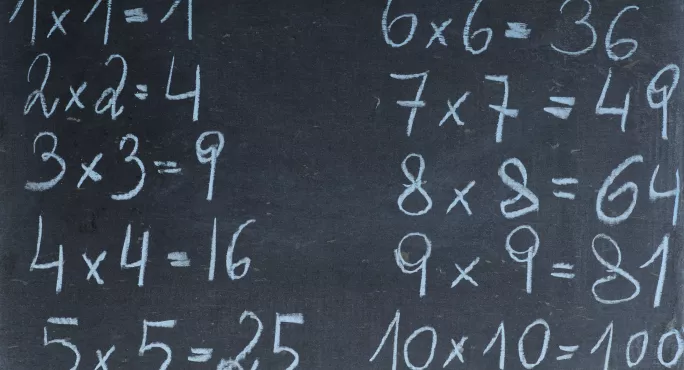Headteachers have said the proposed statutory times table test for eight- and nine-year-old pupils is a pointless waste of time and should be scrapped.
The NAHT headteachers' union said almost all of the 269 school leaders who were surveyed for its report Multiple Concerns said the test did not give them any new information about children's abilities.
Quick link: Times tables check ‘distorting the curriculum’
Opinion: 'School maths is a desecration of the subject'
News: Schools can try out DfE times tables check
The report added that technology issues with the online test could lead to "chaos in the classroom" when it is taken by Year 4 pupils in June 2020.
The test, which is officially known as the multiplication table check (MTC), is an on-screen assessment that involves pupils answering 25 questions with six seconds allowed for each answer.
But the NAHT report, published today, found that:
- 94 per cent of heads said the test told them nothing they did not already know.
- 85 per cent of heads said administering the test increased or significantly increased workload.
- Only 5 per cent of heads thought this increase in workload was beneficial for children’s learning.
- 31 per cent felt access arrangements for children with SEND were inadequate.
- 29 per cent reported a lack of sufficient IT hardware devices.
NAHT general secretary Paul Whiteman said: “This is a totally unnecessary test, which adds workload to no benefit to pupils or teachers. When we surveyed our members in 2017, only 16 per cent supported the proposal for a national statutory test. Little from the pilot has changed the minds of school leaders. We recommend that the test is scrapped.”
Mr Whiteman said a quick recall of tables helped with more complicated mathematical problem solving, but said the new test “does not tell school professionals anything that they don’t already know about a pupil’s mathematical ability”.
Many respondents were concerned about how well the test worked for children with SEND and felt that even for other children it was more a test of IT proficiency than of knowledge of multiplication.
Mr Whiteman said: “Pupils with additional needs will be disadvantaged, meaning that the test is unfair. The technology is not sufficiently robust, meaning that there could be chaos in the classroom next June.”
Detailed results identified 13 major problems with the test, including: results being affected by IT skills; unclear differences between the test and the "try it out" version; and logins that worked only on the Chrome browser.
Complaints about the test’s design, technology and administration included “having to email headteacher for daily logins”, and that it was impossible to remove absent pupils from the test.
One respondent said: “The timed questions were not a true reflection on some of our pupils’ fluency. Having watched them taking the test, some were a fraction of a second outside of the time limit but they had the correct answer. Does that mean that they don’t know their times tables or does it mean that they were slightly too slow to type it in?”
Another noted: “This test will only serve as yet another means to hold me to account and increase my staff’s workload…It sends an even more depressing message to teachers about how often they’ll be measured and held to account by narrow, curriculum-warping tests that do nothing to improve teaching quality.”
Nick Gibb, school standards minister, said: “Leaving primary school with a fundamental grasp of basic numeracy is as important as leaving being able to read. And just as the phonics check has helped more children learn to read, the multiplication table check will ensure more pupils know their times tables.”
Mr Gibb said the test would allow schools to understand how pupils performed against national and local averages and had been designed to be “easy to use and accessible for both teachers and pupils”.





